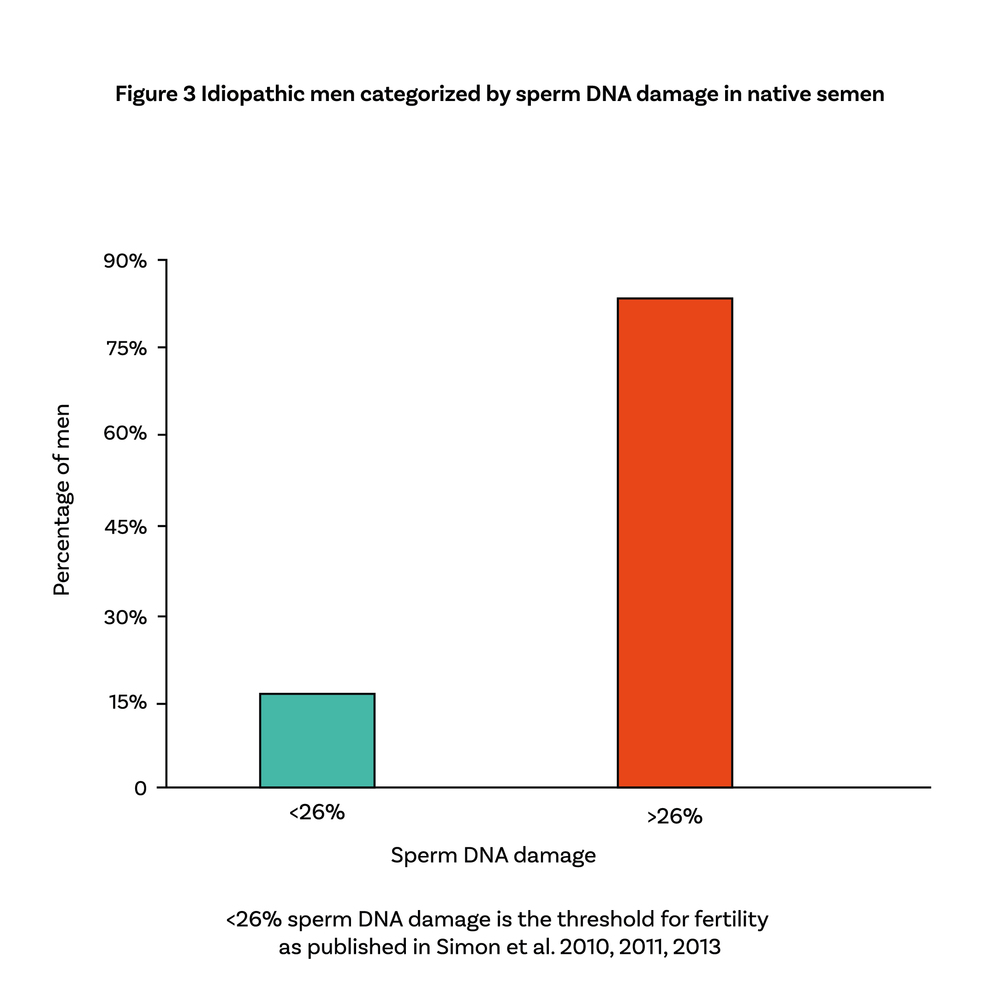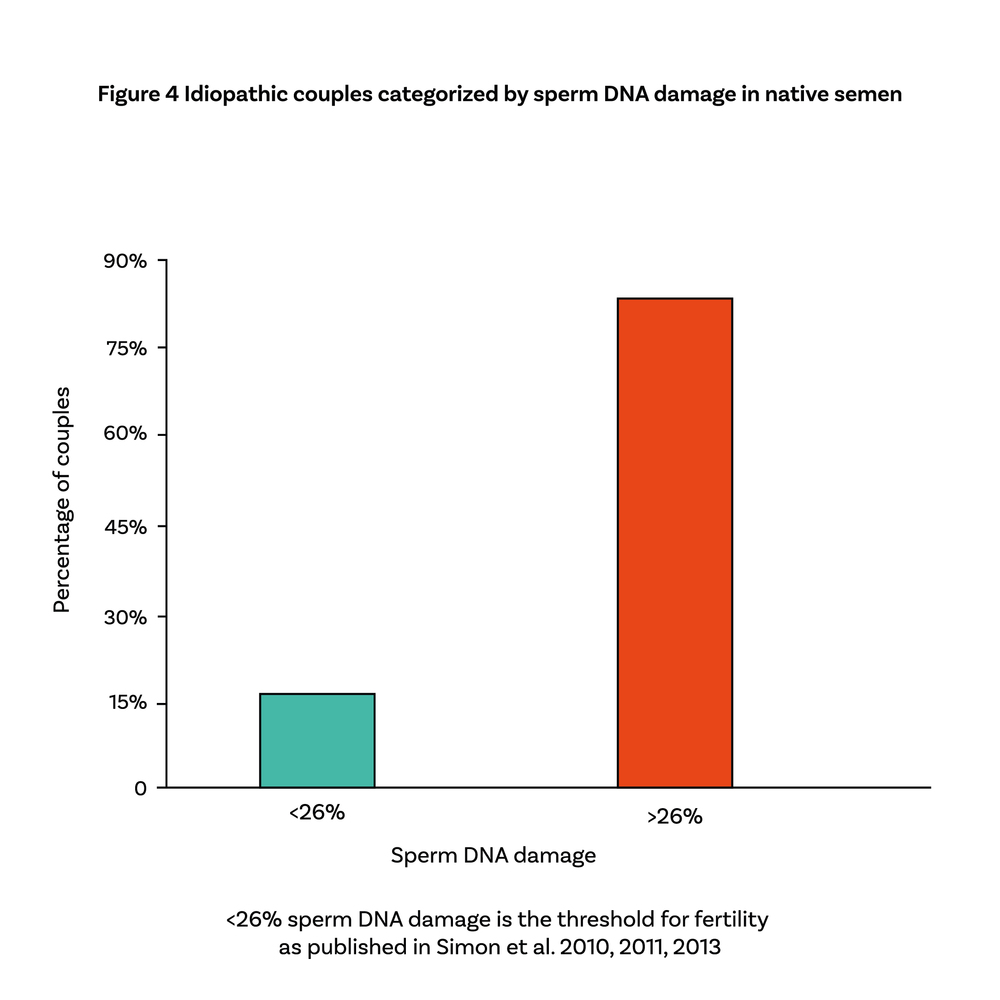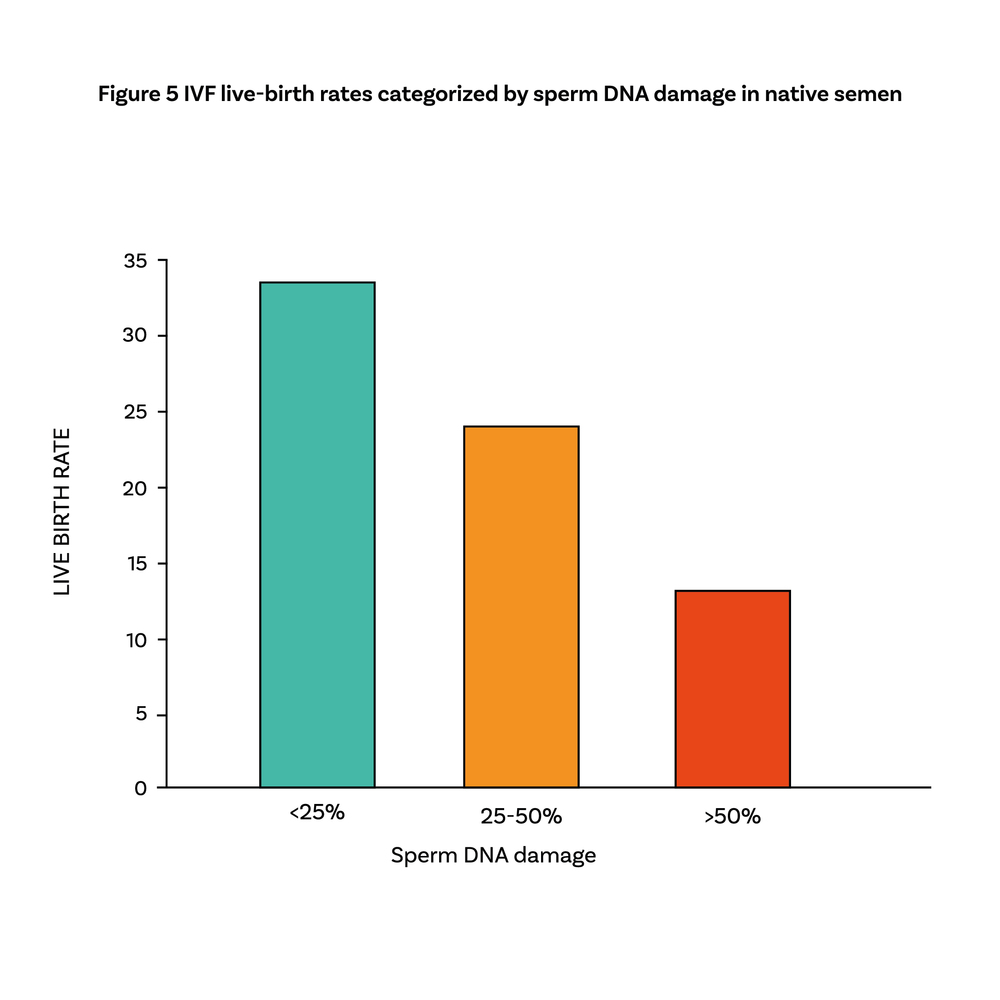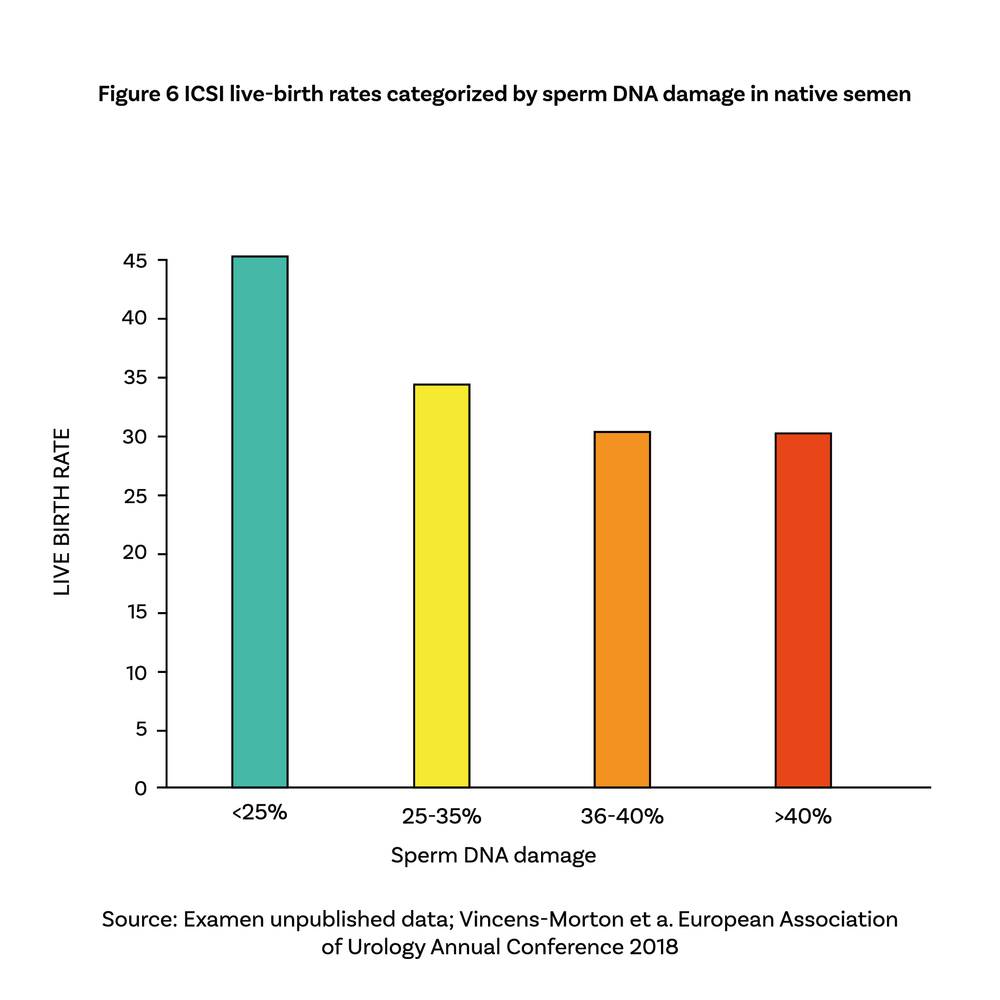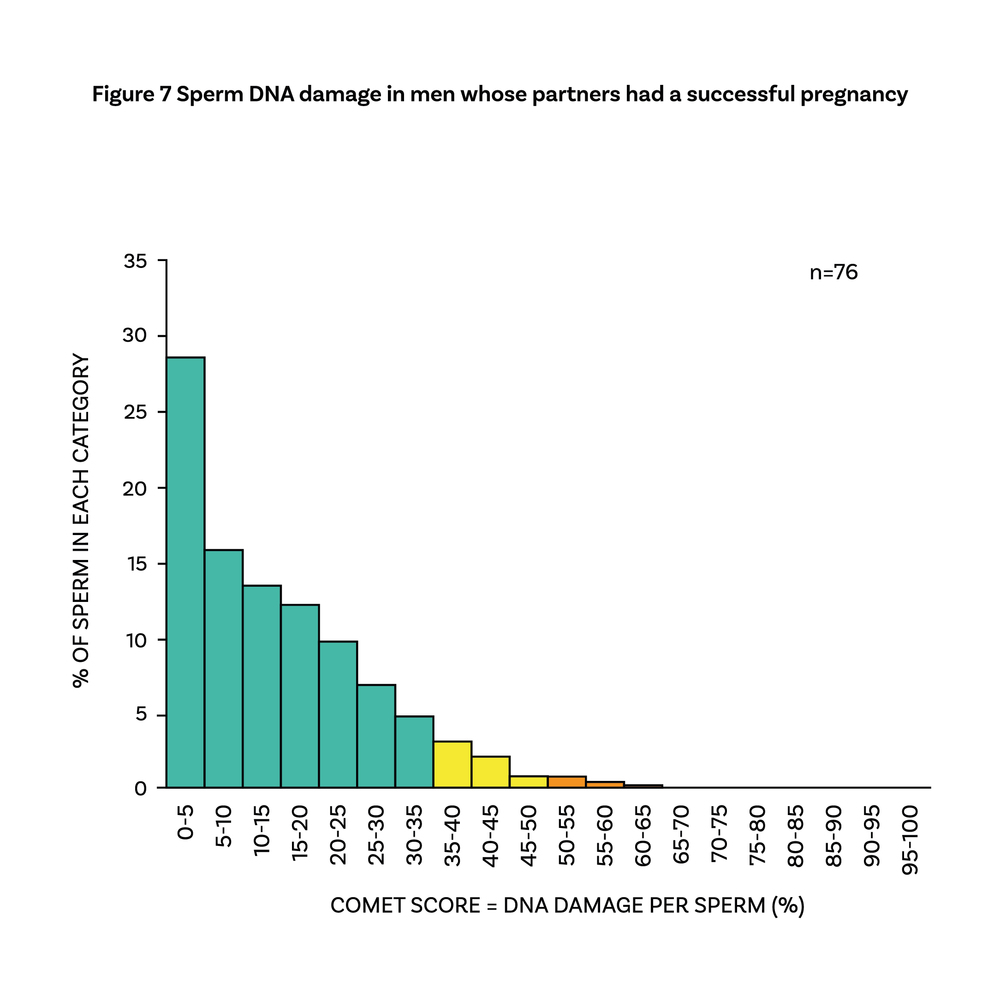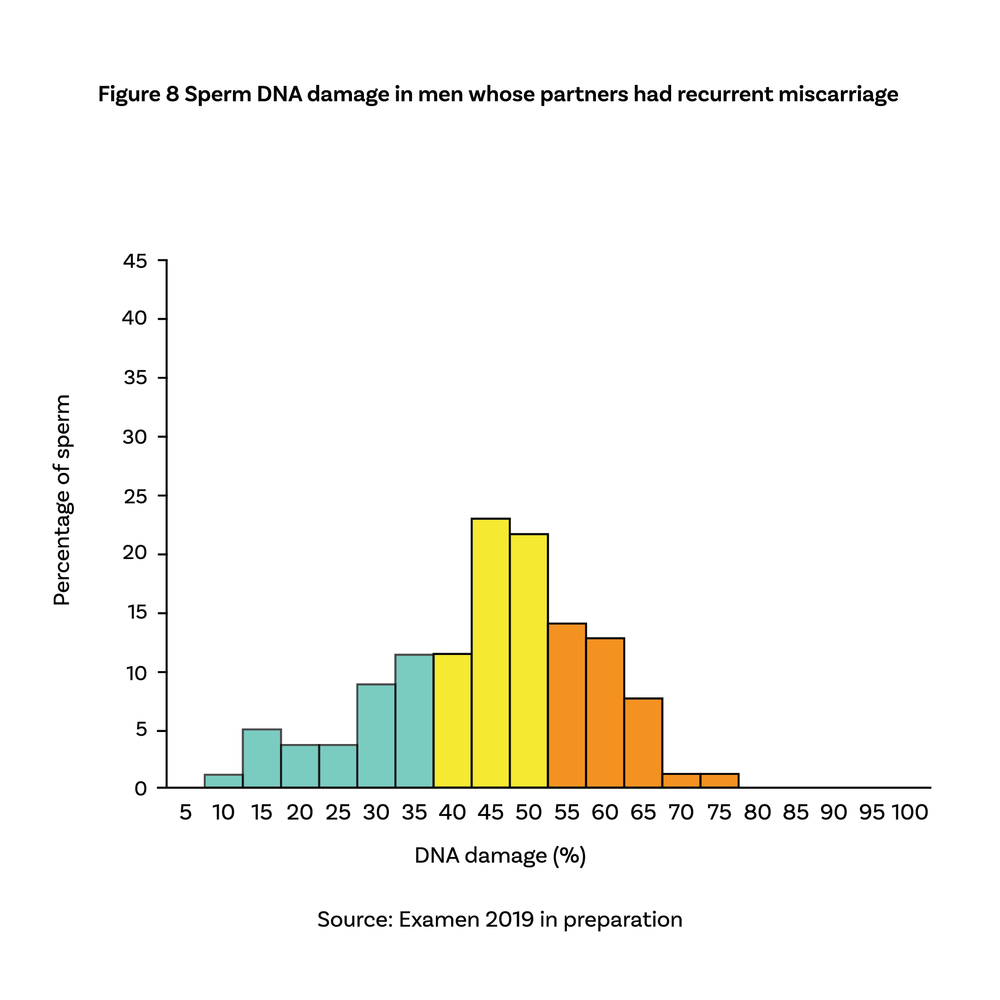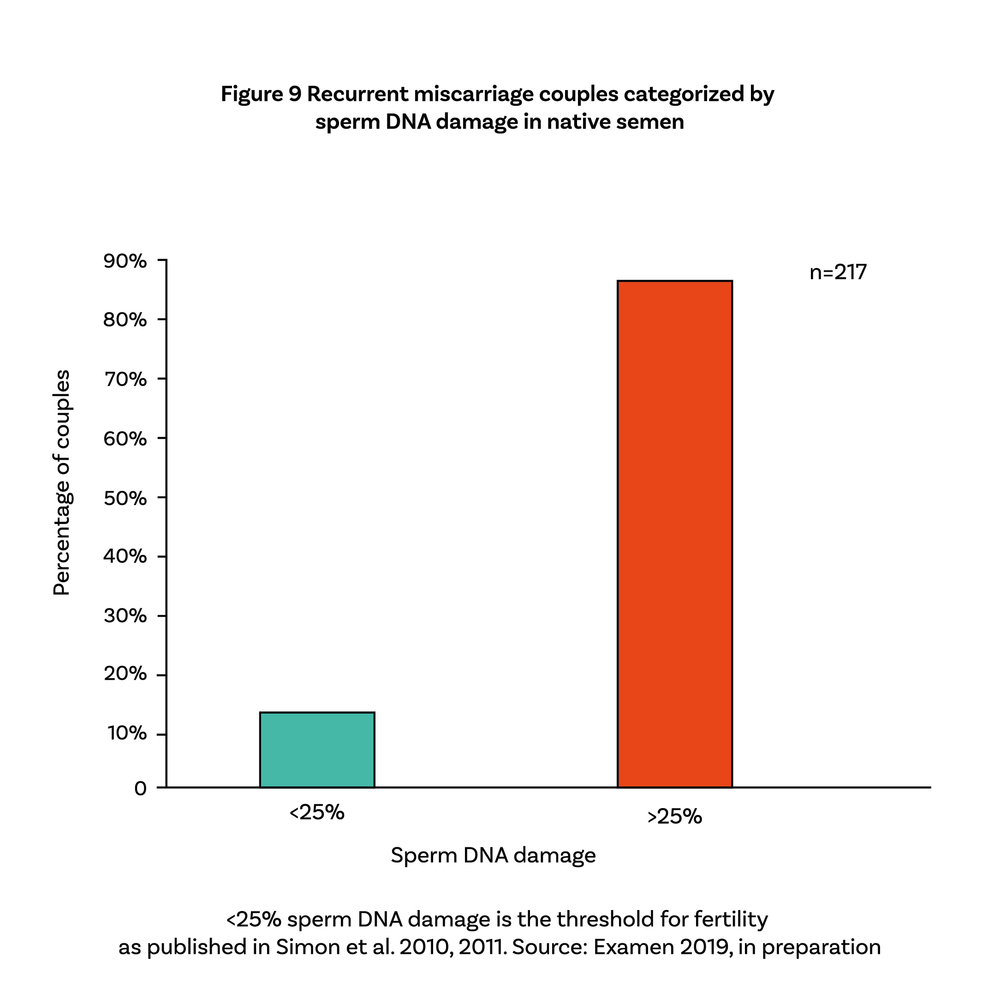Sperm DNA Fragmentation & Infertility
Unlike the many tests for female infertility and oocyte quality that advance each year, the same Semen Analysis test for male infertility has been used since the 1950s. The Semen Analysis test provides important information about sperm production, but it has limited diagnostic value for male infertility.
This is evident from the fact that 25%-30% of couples are diagnosed with idiopathic or ‘unexplained’ infertility, where no cause of infertility can be detected in either the male or female partner.
Over the last decade, sperm DNA fragmentation has emerged as a robust biomarker of male infertility. It was previously thought that the paternal genome did not affect early embryo quality, but there is now compelling evidence that this is incorrect.
Sperm DNA plays a vital role in fertilisation, early embryo development, and implantation in both natural and ART pregnancies. Sperm DNA damage impairs success at every fertility checkpoint.
Examen research shows that sperm from fertile men have low levels of DNA fragmentation compared to sperm from infertile men (Figures 1 and 2), and over 40% of men or couples with idiopathic infertility have levels of sperm DNA fragmentation outside the fertile range (Figures 3 and 4).
Sperm DNA Fragmentation, IVF & ICSI
Examen research has shown that as the level of sperm DNA fragmentation damage increases, IVF live birth rates decrease sharply and steadily (Figure 5).
Our latest data shows that ICSI live birth rates are also impaired as sperm DNA fragmentation damage increases, but the impact is less than with IVF (Figure 6).
This is thought to be due to the capacity of the egg to repair some of the sperm DNA damage post fertilisation.
Sperm DNA Fragmentation & Miscarriage
Recent meta analyses have shown that sperm DNA fragmentation doubles the likelihood of miscarriage.
Good sperm DNA quality is essential for the normal functioning of paternal genes and the early development of the embryo and foetus, so it is not surprising that good quality sperm DNA is also needed to maintain a healthy pregnancy.
Examen research shows that sperm from men whose partners have a history of miscarriage have higher levels of sperm DNA fragmentation than sperm from those whose partners deliver healthy babies (Figures 7 and 8).
This is not only confined to ART pregnancies. We have observed high sperm DNA fragmentation damage in over 85% of men whose partners had recurrent miscarriages following spontaneous conception (Figure 9).




